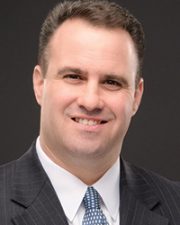Why demand for life sciences hasn’t wavered - by Matt Daniels

While some of us have heard gloomy forecasts for the commercial real estate market in the wake of COVID-19, I’m here to report that demand - especially for life science real estate - has not wavered. Companies such as Google, Uber, Zillow and Microsoft are phasing back into the office over the next 12 months, and recent JLL research has found that 94% of employees want the option of returning to the office. Retaining a physical office footprint is essential to serving employee needs: 70% of employees prefer to spend a majority of their time at the office.
And, as a specialized segment that’s focused on health, wellbeing and increased lifespan, the life science sector is not only a high growth one, driven by resilience and consumer demand, but it is more crucial than ever amid COVID-19. These companies continue to drive the cures we need, and the proof is in the numbers. 49% of IPO activity in 2020 has been within the healthcare sector and driven by life science companies. 25 life science companies have gone public since April 1st, 2020, and $3.9 billion has been raised across five venture capital funds focused on life sciences since then. In total, commercial real estate demand in this sector remains significantly strong, with nine out of 10 life science tenants remaining active in the market post-COVID-19.
In addition to the continued growth of the life science sector, there is no doubt that we still need office space more generally. Although technology has enabled work from home policies to function more smoothly, physical office space is still a key differentiator for companies. Zoom calls may be effective for teams to touch base, but they don’t replicate the onboarding process for new employees or successfully integrate them into the company culture. Person-to-person mentorship is key to developing young talent and advancing their careers, and younger employees also rely on the office as part of their social network.
The importance of spontaneous interactions in an office environment can never be underestimated.
Beyond company culture, for certain industries like life science, the need for a physical space for operations will always exist: You can’t conduct clinical trials in a one bedroom apartment, and life science companies know that medical developments occur over a long period of time, not just a quarter. To account for this, their leases are typically between 12-15 years, which is well beyond the challenges we expect to face with COVID-19. These companies know that in order to be viable, it’s critical to look past the current challenges and towards their long-term mission of developing crucial vaccines vital to the medical industry.
Apart from space requirements, the adage of location, location, location still rings true for many companies. Neighborhoods such as Boston’s South End have emerged as premier live/work/play locations due to the connectivity and diversity afforded by its location. With upcoming developments like Exchange South End offering great access to amenities and the talent located at the nearby Boston Medical Center and BU’s Medical Campus, this neighborhood offers a unique opportunity for most companies. JLL has also found that younger talent often resides in a more walkable distance to work, making developments like XSE even more fitting for the next generation of life science employees.
As we look ahead to the “new normal” post-COVID, one thing we can all be confident about is the continued necessity of life science developments. Exchange South End’s life science campus is an ideal example of new development that will help meet both of these needs.
Matt Daniels is a New England brokerage lead at JLL, Boston, Mass.
Newmark negotiates sale of 10 Liberty Sq. and 12 Post Office Sq.


Five ways to ruin a Section 1031 Like-Kind Exchange - by Bill Lopriore

How COVID-19 has impacted office leasing - by Noble Allen and John Sokul

Make PR pop by highlighting unique angles - by Stanley Hurwitz








.png)